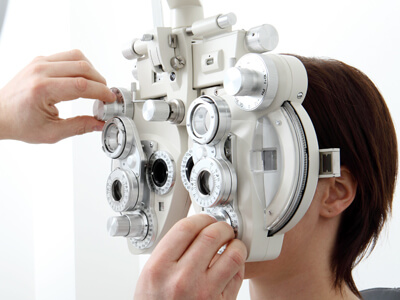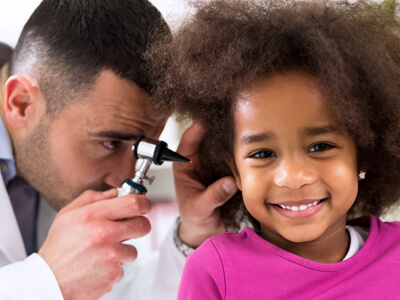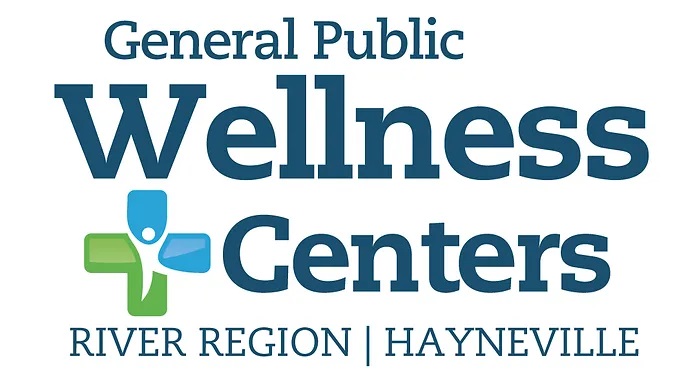Our optometrists provide comprehensive eye care to patients of all ages. We test for many conditions including diabetes, glaucoma, cataracts, dry eye, conjunctivitis, cataracts, red eye, macular degeneration, and more.
It’s very important to have regular eye exams, regardless of your age or physical health.
During a comprehensive eye exam, the doctor will determine your prescription for glasses, and will also examine your eyes for common diseases, learn how your eyes function together, and assess your eyes as a determining factor of your overall health.
A comprehensive eye exam includes a significant number of procedures which establish your eyes’ health and the quality of your vision. Some of these tests range from reading an eye chart to examining the inside of your eyes using a high-powered lens.
Pediatric Eye Exams
According to some experts, approximately 25% of school-aged children, and 5% to 10% of pre-schoolers, have vision problems. The American Optometric Association (AOA) suggests that all children have their eyes checked at 6 months of age, then again at age 3, and again at the start of school. It is recommended that children who have no eye problems or risk factors for vision problems should continue to have their eyes examined by a qualified eyecare professional every two years thereafter.
Any child who has existing vision problems or risk factors should have their eyes checked more frequently. Risk factors for eye problems include, but are not limited to: premature birth, turned or crossed eyes, developmental delays, history of eye injury, and family history of eye disease, amongst other physical illnesses or diseases.
According to the AOA, children who wear eyeglasses should have their eyes checked at least every 12 months, or according to their eye doctor’s instructions.
Adult Eye Exams
The American Optometric Association (AOA) recommends that any adult who wears eyeglasses or contacts have an annual eye exam. Even if you don’t normally need vision correction, it is still important for you to have an eye exam every two or three years until the age of 40, depending on your overall health and rate of visual change. If you are over 40 years of age, you should have your eyes examined every one to two years. Everyone over the age of 60 should be examined yearly due to the increasing risk of eye disease.
Doctors generally recommend that adults with diabetes, high blood pressure and other disorders have more frequent examinations because many different diseases can have an impact on vision and overall eye health.







